EAL perspectives on decolonising the curriculum
Our 29th Annual Conference
Saturday November 20th 2021, 9am-5pm
Online Conference (via Zoom)
NALDIC 29 | #naldic29
At NALDIC 29, NALDIC’s 29th annual conference we were keen to engage in discussions about what decolonising the curriculum looks like in relation to EAL. At the heart of decolonising work is a commitment to engaging with difference and change and reflecting on whose perspectives, knowledge and values are promoted and included, where, when and why, and how we ensure equity and social justice for all learners and teachers. We were interested in hearing more about the different ways in which ideas about decolonisation impact and inform the work you do in EAL, whether in terms of multilingual classroom and assessment practices, changes to schemes of work and curriculum resources, teacher recruitment, or training and CPD.
Conference format
What were the formats for our second online conference?
Posters: These are designed to provide opportunities to present a brief overview of classroom practice/research. Like a face-to-face conference, the online posters are available to view throughout the day.
Papers: These presentations are designed to provide time and space to report on classroom practice/research findings related to the conference theme. Like a face-to-face conference, these sessions are delivered ‘live’ (30 minutes including Q&A).
Workshops: These are designed to be more interactive spaces to explore classroom practice/research. Like a face-to-face conference, these are likely to involve small group discussions, tasks and activities and are delivered ‘live’ (60 minutes).

Keynote Speaker 1
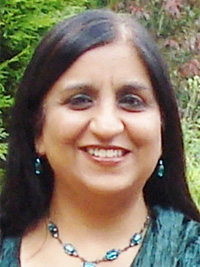 Sameena Choudry
Sameena Choudry
Sameena Choudry is the founder of Equitable Education, an educational consultancy specialising in closing the attainment gap. She is also co-founder of #WomenEd, a grassroots movement for connecting existing and aspiring women leaders in education. She has worked as a teacher, lecturer, ITE tutor, examiner, senior leader, adviser and has had senior officer roles within four LAs. She is also a trained Ofsted inspector and has considerable experience of running a very successful supplementary school for many years. Sameena has worked with hundreds of schools to improve educational outcomes for pupils with specific needs who, with additional support, can and do achieve highly. She has contributed to a number of publications and regularly speaks at educational conferences on issues relating to equality, diversity and social justice.
Keynote Title and Abstract:
From segregation to colonisation: A short history of EAL provision and practice in England
This presentation will provide a brief overview of provision and practice for pupils for whom English is an additional language and those from minority ethnic backgrounds in England since the 1960s to the present day. The talk will cover approaches taken nationally, including the deliberate absence of any coherent strategy at times, to meet the needs of an increasingly diverse pupil population. It will highlight the positive approaches and successes that have been achieved during this time but also show how there have been missed opportunities, neglect and ignorance, including more recently a concerted effort to devalue and pitch communities against one another. The session will end with a call to action for professionals working in the field and highlight what is needed for the future if schools are to be responsive, inclusive and successful in meeting the needs of all pupils.
Keynote Speaker 2
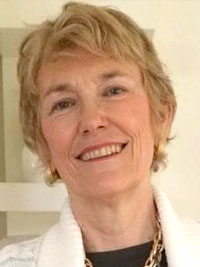 Déirdre Kirwan
Déirdre Kirwan
Déirdre Kirwan was Principal of a linguistically diverse primary school in Ireland (1987-2015) where she led an integrated approach to language teaching and learning that supported the use of pupils’ home languages. Déirdre was awarded European Ambassador for Languages (Léargas, 2008); PhD (Trinity College Dublin, 2009) for her research in language education. She has contributed to the new Primary Language Curriculum (Ireland) and the European Centre for Modern Languages on the topic of early language learning (age 3-12). With David Little she has co-authored Engaging with Linguistic Diversity: A Study of Educational Inclusion in an Irish Primary School (2019) Bloomsbury Academic, and Language and Languages in the Primary School: Some guidelines for teachers (2021) Post-Primary Language Initiative https://ppli.ie/teaching-and-learning/supporting-multilingual-classrooms/?gresource=ppli-primary-guidelines/
Keynote Title and Abstract:
Linguistically diverse classrooms: encouraging children to show who they are and what they can do
Describing the integrated, plurilingual approach to language learning developed in a primary school in Dublin, this presentation will show how linguistically diverse classrooms can provide an enriched educational environment for all learners. Helping EAL pupils to gain maximum benefit from their primary schooling, the approach also provides significant advantages for pupils whose home language is a variety of the language of schooling. An essential feature is the inclusion of EAL learners’ home languages in classroom communication which benefits all pupils. Typical outcomes are an unusual degree of language awareness, a readiness to undertake ambitious language learning activities on their own initiative, and the development of high levels of age-appropriate literacy in English, Irish, French (in the last two years of primary school) and immigrant pupils’ home languages (included without instruction in school but with parental support at home). This approach also fosters pupils’ wellbeing and promotes social cohesion.
Keynote Speaker 3
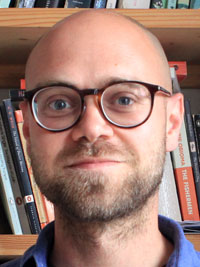 Ian Cushing
Ian Cushing
Dr Ian Cushing is Senior Lecturer in English in the Faculty of Education at Edge Hill University, where he teaches on modules related to English education, language education policy and critical pedagogies. Ian’s research focuses on language ideologies, language policies and linguistic inequality in schools, work which challenges the racialised surveillance, stigma and punishment of language practices deemed ‘inappropriate’ for school. His most recent project, funded by a grant from the UK Literacy Association and in collaboration with practicing teachers and illustrators, is examining how children’s literature might be used as an entry point for facilitating critical conversations around language racism and raciolinguistic ideologies in schools. His work has appeared in journals such as Language in Society, Journal of Language, Identity and Education, Language Policy, British Educational Research Journal and the International Journal of Bilingual Education and Bilingualism. His monograph, Standards, Stigma, Surveillance: Language Policy in England’s Schools will be published by Palgrave Macmillan in 2023.
Keynote Title and Abstract:
Raciolinguistic ideologies and the sonic surveillance of language in schools
Schools can be hostile spaces for speakers whose language practices are deemed to deviate from so-called ‘Standard English’: here conceptualised a social and colonial construct which is designed by and based on the language practices of the white bourgeoisie. This talk examines how this hostility operates under the logics of raciolinguistic ideologies, a set of beliefs about language which frame racialised speakers’ language practices as lacking, deficient and unsuitable for school. Whilst these ideologies have long been in circulation in England, this talk offers a contemporary critique using a raciolinguistic perspective, which shifts attention away from the stigmatised language practices of racialised speakers and towards the hearing practices of white ears. I show how raciolinguistic ideologies translate into sonic surveillance in England’s schools, especially under policy initiatives stemming from the USA and through a dense web of historical and contemporary policy mechanisms. I draw on a cluster of data including political discourse, national policy, school-produced language policies, teacher interviews, pedagogical materials, Ofsted reports, and workshops with young people. My discussion also explores ways of resisting raciolinguistic ideologies, through the rejection of ‘Standard English’ and the insistence on pedagogies and structures which foster and sustain the language practices of all speakers in school.
Presentations – Papers 1-2
Paper 1
 Tom Avery
Tom Avery
University of Bath
tsa36@bath.ac.uk | Twitter: @toms_elt
Are We Teaching EAL Students to Act ‘White’? An Ethnographic Study of Refugees’ Experiences of School
Over the last two decades, refugees and asylum seekers in the UK have suffered from increasingly hostile Government migration policies and media portrayals (Krzyżanowski, Triandafyllidou, & Wodak, 2018; Refugee Council, 2021). Given this sociopolitical climate, my doctoral research uses a Language Policy framework (Spolsky, 2003) to consider how these discourses and ideologies are reflected and contested in school and teacher practices. From there, I examine teacher-student interaction to assess the impact these ideologies have on the educational experiences of refugee children resettled in English schools. In this presentation, I report on ethnographic fieldwork carried out with seven refugee children in a deprived suburban primary school between September 2020 and May 2021. I spent this time participating in school life, taking detailed observational fieldnotes, and conducting interviews with students and staff. From this data, I present a set of critical vignettes to demonstrate how the participant refugee children were positioned and positioned themselves within teacher-student dialogic interaction and, therefore, wider ideologies. Initial findings suggest that language ideologies from the macro (media/government) level have little to no presence in the classrooms in this study. Instead, individual teacher ideologies play a much stronger formative role alongside the children’s own desires to assimilate into school. However, behind this veneer, I identify and problematise more subtle Standard Language Ideologies (Cushing, 2021) present in the curriculum and language practices of the teachers, ideologies which appear to coax the children out of their cultural and linguistic capital. These findings add support to a growing body of evidence which encourages schools and teachers to draw on all forms of student capital.
Paper 2
 Gerard Doyle
Gerard Doyle
University of Worcester
g.doyle@worc.ac.uk | Twitter: @GerardDoyleITE
A qualitative inquiry into the construction of PGCE Primary student teachers’ English as an Additional Language beliefs and pedagogical content knowledge
My research project seeks to explore how and why PGCE Primary student teachers construct their beliefs and knowledge about teaching children learning English as an Additional Language. I would like to know if their beliefs and knowledge affects their pedagogical decision making for teaching English as an Additional Language (Shulman, 1987). The content and construction of student teachers’ knowledge and beliefs is explored by first examining student teachers’ historical educational experiences (Lortie, 1975). Lortie proposes that student teachers undergo an apprenticeship-of-observation that informs their teacher knowledge and identity. Within my research project there is a focus on student teachers’ educational experiences including their own curriculum Languages learning, and experiences of EAL pedagogy (if any). Then, during their undertaking of the Primary PGCE programme student teachers’ are surveyed a second time on their beliefs and knowledge regarding EAL pedagogies/experiences. I seek to explore if and how their beliefs and knowledge change and why. The research is informed by Life History methodology (Goodson, 2009) where student teachers’ biographies are understood beside the contexts of the development of EAL pedagogy and initial teacher education in England. The Life History approach enables the micro-contexts of classroom pedagogical decision making to be viewed meaningfully alongside the macro-contexts of education policy and wider socio-political circumstances. This research project is being undertaken as part of an EdD. I have conducted a pilot study and will be undertaking data collection for the study in autumn 2021 and early 2022.
Presentations – Papers 3-4
Paper 3
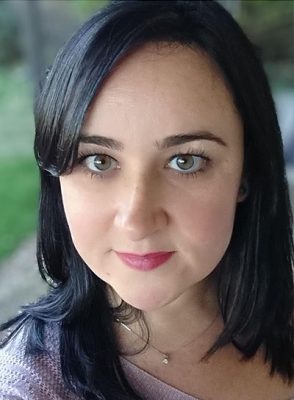 Aishling Cuthbert
Aishling Cuthbert
St Edmund’s Catholic Primary School
a.cuthbert@st-edmunds.richmond.sch.uk
 Kathryn Kashyap
Kathryn Kashyap
Achieving for Children
kathkashyap@gmail.com | Twitter: @KathrynKashyap
Sensitivity, power and lived experience: a decolonised reading of “The Boy at the Back of the Class” with Code A and B EAL learners
In this paper, we share how St Edmund’s Catholic Primary School in Whitton chose new class texts as part of their decolonising work. Identifying a need for pupils to learn more about refugees, their choice of “The Boy at the Back of the Class” for Year 5 presented fantastic challenges and opportunities as well as ethical considerations. Designing this cross curricular scheme of work with code A and B learners at the centre of their planning, enhanced whole class activities through a variety of mediums such as video, drama and group work. It ensured that pupils had a strong context to develop their language skills and understanding, making this text accessible to all pupils and enabling them to learn together about the world in which we live. Ideas around power, vulnerability and justice were central to the project. Whilst being careful to protect wellbeing, studying the text helped EAL pupils who were members of the class to share their lived experiences of being new to the UK. Through this presentation, we give an account of our own learning experience as we developed this project, we offer tips, practical ideas and examples of pupils’ work which are helpful in guiding similar projects across all key stages.
Paper 4
Tianyi Zheng
University of Oxford
tianyizh_925@outlook.com | Twitter: @tianyi_zheng
Translating theory into practice: An evidence-based framework for the implementation of pedagogical translanguaging in multilingual classrooms
Pedagogical translanguaging refers to the instructional strategies teachers use to incorporate multiple languages into the classroom setting. Unlike the monolingual approach, it takes into account students’ home languages, and thus offers great potential for deconstructing language hierarchies in the school context and empowering students from the full spectrum of language backgrounds.
While a growing body of practitioners has embraced the translanguaging approach in their language teaching, it remains unclear what strategies comprise pedagogical translanguaging, how the strategies serve different teaching aims, and how they are used in relation to students in different education phases. This study therefore constructs a framework for the implementation of pedagogical translanguaging based on a systematic review, with the aim of resolving these issues in the light of empirical evidence.
A rigorous search of eleven electronic databases, supplemented by citation searching, identifies 22 studies that meet all the eligibility criteria. The coding process is guided by the grounded theory for synthesis and conducted via NVivo R1.5.
Two major categories of pedagogical translanguaging emerge from the evidence: explicit and implicit strategies. Explicit strategies consist of three sub-categories, namely, demonstration, connection and transformation; and each sub-category comprises two representations. Respectively, the sub-categories are listing and switching, mixing and comparison, multidirectional translation and multimodal practices. The implicit strategy has one sub-category named translanguaging space creation, which also has two representations: teacher’s language switching and group organisation. Across all of these strategies, vocabulary acquisition was identified as the most common teaching aim, and a sequential relationship was observed among the explicit strategies in terms of education phases.
The framework offers curriculum developers a practical guide to transforming the monolingual approach in language education and informs practitioners of specific strategies they can use to sustain students’ home languages. Further studies are recommended to validate and improve this framework, which is expected to facilitate the decolonisation of the curriculum and promote educational equity for all students.
Presentations – Papers 5-7
Paper 5
 Hamish Chalmers
Hamish Chalmers
Department of Education, University of Oxford
Climbing down from the Ivory Tower: Identifying priorities for EAL research that teachers and other educators actually need
New research in English as an Additional Language (EAL) should be informed by what users of that research consider to be meaningful, relevant, and useful. By involving research users in setting research agendas, researchers can help to ensure that their research meets those expectations. In this paper we will describe a research Priority Setting Partnership, for which we adopted a tried and tested method to identify which ‘unanswered questions’ about the education of EAL learners are of highest priority for the people who live and work with EAL learners as a matter of routine: teachers and other educators, parents and EAL learners themselves. A steering committee consisting of representatives of these groups was established to guide the project. The committee informed the design of an online questionnaire inviting EAL research users to submit their most pressing questions relating to the education of EAL learners, that could be addressed through research. This questionnaire was publicized to user groups, such as via NALDIC’s EAL/Bilingual forum, and collected a total of 767 ‘unanswered questions’. These raw responses were analysed, questions addressing similar themes were combined, and a consolidated list of 81 EAL-specific research questions was formed. EAL research users were asked to rank these questions in order of priority in another online survey. Finally, representatives of EAL research users discussed and debated this long-list of ranked questions to form a Top 10 of research priorities for EAL. We are now publicizing this list of research priorities to EAL researchers and research funders in the hope that new research in the field will meet the stated needs of the people to whom it matters most, and thus have direct impact on their classroom practice. By involving EAL research users in setting the agenda for new research (many of whom not only support EAL learners in schools, but who also often hail from the same linguistic and cultural communities as those learners), we have contributed to giving voice to the culturally diverse EAL community of practice. Understanding the needs, expectations and uncertainties, as directly stated by representatives of this diverse community, helps in our efforts to make all aspects of the British education ecosystem representative of the people who are in it.
Paper 6
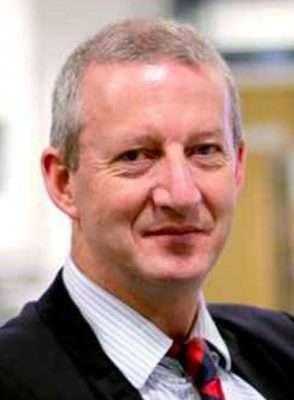 Prof Des Hewitt
Prof Des Hewitt
University of Warwick
d.m.hewitt@warwick.ac.uk
Co-created learning in ITT – developing the voice of EAL and bilingual speakers in Teacher Education
All trainee teachers at the University of Warwick undertake an Inclusion Enhancement in SEND and EAL which includes the voice of pupils, teachers and teacher educators. This is a commitment to the co-creation of learning by all stakeholders in teacher education, especially PGCE student teachers themselves. For instance, one trainee originally from Bulgaria led a session on how to develop high standards of academic English in EAL speakers. A Deputy Head teacher and school-based teacher education manager explains with her own journey as a refugee from Kosovo, the importance of an understanding of the culturally different experiences of education and the emotional trauma of forced migration. A co-constructed approach to teacher education has transformed how we work and embeds the Warwick Teacher Value – Social Justice.. Merely analysing and practising teaching strategies will not ensure that we secure high expectations for all learners. Understanding the influence of our own personal history in our professional identity is the first step in recognizing and challenging potential unconscious bias teachers. Understanding of the world around teachers and the performance of their pupils can be seen as a projection of the teacher’s own professional narrative. More than an analysis of professional practice, University tutors and school mentos need to be alert to the role of their own and their trainees’ values in driving expectations. We should encourage trainees’ understanding of the role of culture in language learning, the importance of challenging racism and an aspiration to social justice (here defined as promoting the success of all learners, regardless of cultural and linguistic background). None of this is easy, but it is something we should aspire to. It will help the trainee to be a better teacher and a better citizen.
Paper 7
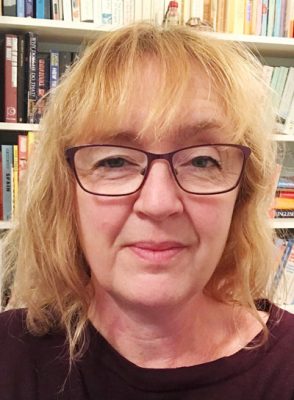 Tanya Ingram
Tanya Ingram
EAL Advisory Service -Norfolk County Council
tanya.ingram@norfolk.gov.uk
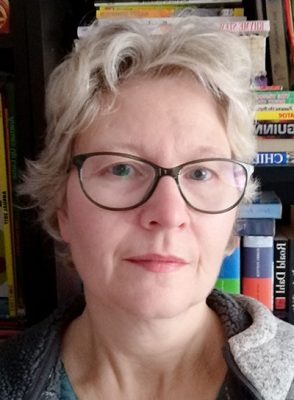 Lisa Reynolds
Lisa Reynolds
EAL Advisory Service -Norfolk County Council
lisa.reynolds@norfolk.gov.uk
Supporting Syrian and Afghan refugee resettlement and education
Norfolk County Council’s EAL/BAME Advisory Service has been involved in supporting schools in the admission and education of refugee children for 15 years. We participated in the Gateway Programme for Congolese refugees and more recently, in collaboration with NCC’s People from Abroad Team, we have delivered the educational support strand of the package of care for Syrian and Afghan families. Norwich is a City of Sanctuary and our EAL/BAME Advisory Service is actively involved in promoting, supporting and assessing schools who wish to become Schools of Sanctuary. In this Paper we talk about the package of support that Norfolk County Council has facilitated for refugee resettlement, our collaboration with the School of Sanctuary initiative, what we have learned about from our experience, and some of the resources we use to support schools in welcoming refugee children.
Workshops
Workshop 1
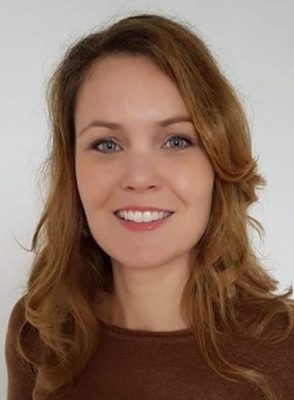 Jaimy Ottevanger
Jaimy Ottevanger
Taal & Teach
Twitter: @JaimyOtt
Diversity in children’s books
The importance of developing solid reading skills for children’s language development and general success in school and society are well known.
Besides this most obvious benefit of reading, books also play an important role in children’s socialisation (Balke & Stokvis, 2001) as they provide the space for children to experience, discover and gather knowledge on how people treat each other (Walta 2011). Or, as Rudine Sims Bishop, ‘mother of multicultural children’s literature’, phrases it: books can serve as mirrors and windows which we can use to look at ourselves and others. Schools play a key role here, as they select the books our children will come into contact with. It seems safe to assume that books in schools should reflect the diversity we find in society.
Surprisingly, this is often not the case. A telling study was carried out in Amsterdam, a city with 180 nationalities (compared to 150 nationalities in New York!). Of the 502 books available to children in participating schools, only 8% had diverse main characters (Severina, 2019). While this was a small scale study, it appears to be a wider trend: in 2020 only 30% of published children’s books were about diverse characters or topics and only 27% of published children’s books were by authors of colour (Cooperative Children’s Book Center, School of Education, University of Wisconsin-Madison).
We will begin this workshop with an introduction to the view on books as window, mirrors and sliding doors. In small groups we will briefly discuss the selection of books we are currently offering our students, and identify opportunities for creating a more diverse classroom library.
We will then use a set of focus questions to analyze some of the books that are currently popular amongst our students in more depth. Finally, we will explore extracts of recommended books and create a wishlist of books for our classrooms.
By the end of this workshop participants will have:
– gained a new perspective on books as anti-bias tools
– learned how to select diversity friendly books
– created a practical list of books that will help diversify their classroom library
Workshop 2
Ludovica Serratrice, Peter Gillman | University of Reading
Draško Kašćelan, Cécile De Cat | University of Leeds
Twitter: @QBExProject
Beyond EAL status as a binary label: what can the Q-BEx questionnaire do for teachers? An inclusive approach to documenting the language experience of EAL pupils
The workshop will include:
- “Reflection on practice – how do you assess EAL pupils’ language proficiency and experience”?
- Interactive online activities for live participation
- Hands-on experience of a new tool to profile EAL pupils
- Opportunity for co-creation of the school-optimised version of the tool
Discussion of teachers’ current practice (10 minutes) | (Based around interactive online poll)
What language assessment of EAL students do you routinely use in your context?
What are the issues with assessing language proficiency and experience of EAL students in your context?
What background information are you given about your EAL students and how do you use this?
Why is it important to understand experience as well as proficiency?
Introduction of Q-BEx project (5 minutes)
Aims of the project
Why is there a need for this?
How can this be useful for you in your school? What solutions might it provide?
A closer look at the Q-BEx questionnaire (10 minutes)
Discussion over meaning of the 7 modules: What information can we elicit from the different modules? Which parts would be interesting and useful for you and your school?
Demonstration of key features of the questionnaire (online)
Interactive use of the questionnaire (15-20 minutes)
Use of case study so that teachers can engage with the tool using their own device (mobile, tablet, computer)– different tasks/activities to try
Group discussion: (5 minutes) | (Based around interactive online poll)
Having looked at the tool, which children would you find this most useful for? E.g. all children, new arrivals, start of primary/secondary school?
Co-creation of school-optimised version – group discussion: (5 minutes)
Opportunity to contribute to the streamlined version for schools
Which aspects are most relevant for your practice?
What format do you think would work best for you?
What format of output reporting would be best for you?
Questions (5 minutes)
Posters
Poster 1
 Jacob Huckle
Jacob Huckle
Dulwich College Suzhou / University of Bath
jacob.huckle@dulwich-suzhou.cn
Towards decolonising pedagogy through a whole-school intentional translanguaging framework
This poster will summarise the development of an intentional translanguaging framework at an international school in China. The framework was designed to challenge colonialist attitudes towards English and “home language(s)” use in a highly multilingual school context and consists of a continuum of five language modes for use in all classrooms. The framework aims to contribute towards a culture shift from deficit to asset-based approaches towards EAL students, balancing the benefits of translanguaging with the need for EAL students to develop academic English proficiency. The framework was designed to address particular contextual challenges and attitudes that were identified through stakeholder surveying. This preliminary research found that there were a wide range of attitudes to language use within the school; teachers and students expressed concerns about EAL students’ use of “home language(s)” in mainstream classrooms, such as it being a perceived hindrance to English development, concerns about exclusion of monolingual students, and anxiety regarding behaviour management. The framework was introduced to address some of these concerns and provide a teacher and student-friendly model to leverage the benefits of intentional translanguaging across the curriculum.
Poster 2
Debra Page
debra.page@pgr.reading.ac.uk
Diary writing – keeping Young Interpreters engaged during research
In this poster, I will present a new resource – The Young Interpreter Diary – developed for my research evaluating the Young Interpreter Scheme. The award-winning Young Interpreter Scheme is a school-friendly programme that supports learners with English as an Additional Language using trained ‘buddies’. Young Interpreter Buddies are taught to use their language skills to facilitate the transition to school for peers who are new to English. The aims of my research are to compare Young Interpreters and children who are not scheme members on the linguistic features of their peer-to-peer input to novice EAL learners, their metalinguistic awareness, their levels of empathy, and intercultural awareness at three time points; immediately prior, and immediately after, their Young Interpreter training, and a 3-month follow up.
The Young Interpreter Diary was created for two reasons. Firstly, for research purposes, it was important to record the frequency and type of tasks that the Young Interpreters were engaged in, and how they feel about their tasks as a Young Interpreter. Secondly, the diary is potentially a motivational tool for the Young Interpreters because it encourages reflection on successes and areas for development through engagement with the notes made in relation to activities undertaken. The reflection is in the form of a face emoji from very happy to not happy.
I will present information on how the schools in my research have already been using the diary, as well as real-life examples of the diary being used in practice. The purpose of this poster presentation is to solicit feedback about the Diary. Practitioners will be asked for their opinions about the diary during this poster presentation. I am interested in hearing how practitioners would envisage using the diary with the Young Interpreters.
Poster 3
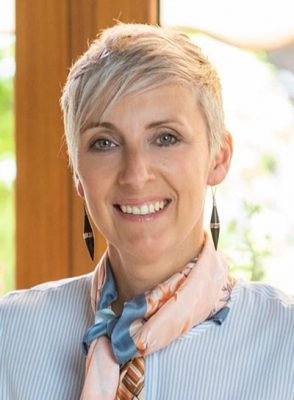 Shona O’Callaghan
Shona O’Callaghan
University of Nottingham / Empowering Creative Minds
Shonaocallaghanlotti@gmail.com
Identifying ‘good practice’ language acquisition in English as an Additional Language (EAL) classrooms in Spain. A Cross-Case analysis of British Schools Overseas (BSO) and Content and Language Integrated Learning (CLIL) settings.
This research was carried out as the final dissertation forming part of a Master in Education with the University of Nottingham. It passed with distinction. A plain language summary of the article was later published on the NALDIC virtual publication, found here: https://ealjournal.org/2019/10/07/identifying-good-practice-in-clil-and-bso-schools-in-spain-a-case-for-more-collaboration/
This study is an investigation into examples of good practice language support strategies found in two differing EAL educational settings in Spain. Through a qualitative research lens, data was collated, validated and cross-referenced with the aim of identifying good practice techniques occurring in both settings. Data demonstrates a wide range of support strategies implemented by teachers daily. While reflective teachers drawing on experience strive to communicate effectively and guide pupils through subject genres and linguistic nuances. Consequently, they reveal the need for more peer support, communication and tailored training for teachers in EAL educational settings in Spain. Findings of this research, it is hoped, may lead to more effective communication between dissimilar methodological approaches to language learning, for improved teacher support, development opportunities. This continues to be an area for development in Spain and possibly other countries in Europe where large classes of EAL pupils are taught through English. With much research performed on French Canadian Immersion contexts over the years and more recently Immersion Education in Asian settings, less has been researched into Immersion British Schools Overseas in a European setting. CLIL continues to dominate the plurilingual research field in Europe. However, little has been thus far carried out to juxtapose the two settings existing parallel in Europe. This researcher calls for more research, collaboration and training for teachers across settings for improved classroom practice, teacher wellbeing and decolonisation of the BSO curriculum.
Poster 4
James Spencer
University of Essex
jamess@psi.kiev.ua
The Other Third Culture Kids: EAL learners’ views on self-identity, home culture and community in international schools
This poster aims to highlight the need to identify better understanding of Third Culture Kids who are also English as an Additional Language learners in an international secondary school. The research focuses on the internal forces of home culture and self-perceived identities as well as the external forces of the school community and the classroom that influence EAL learners in their language acquisition. The poster draws on qualitative data from interviews and language portraits with individual EAL learners at an international school in a major city in Ukraine. The interviews investigated how EAL learners see themselves in terms of an EAL identity, how social status and community influence EAL learners and how the home language and culture are influential in the language classroom. As a result of this data the discussion focuses on the disconnect between the internal and the external forces that TCK EAL learners experience. The poster concludes that more integrated collaboration between EAL and mainstream teachers would foster greater understanding of the internal forces and cultural capital EAL TCK learners bring with them to ensure more effective language learning in the external force of the language classroom. Recommendations for next steps of research are made.


